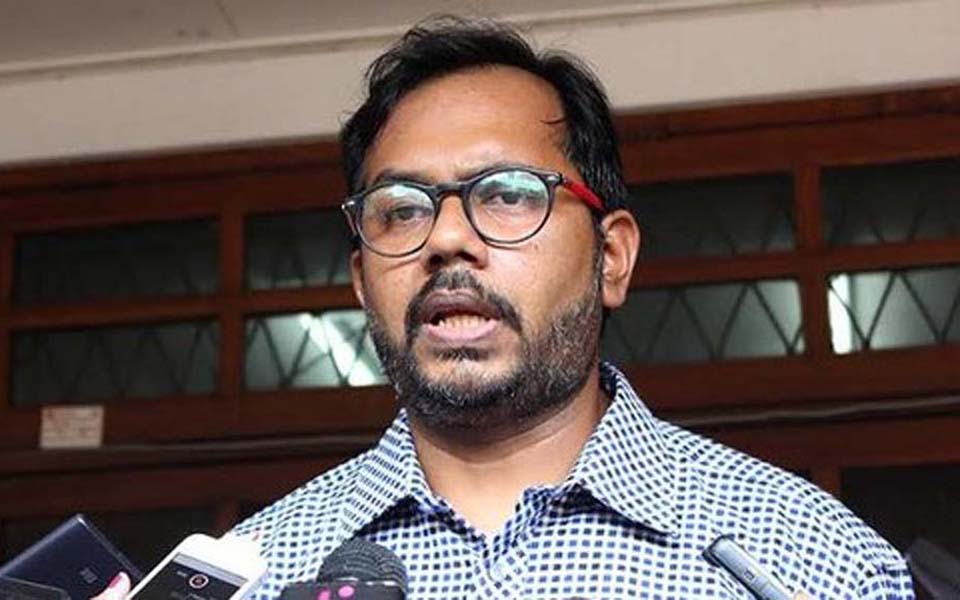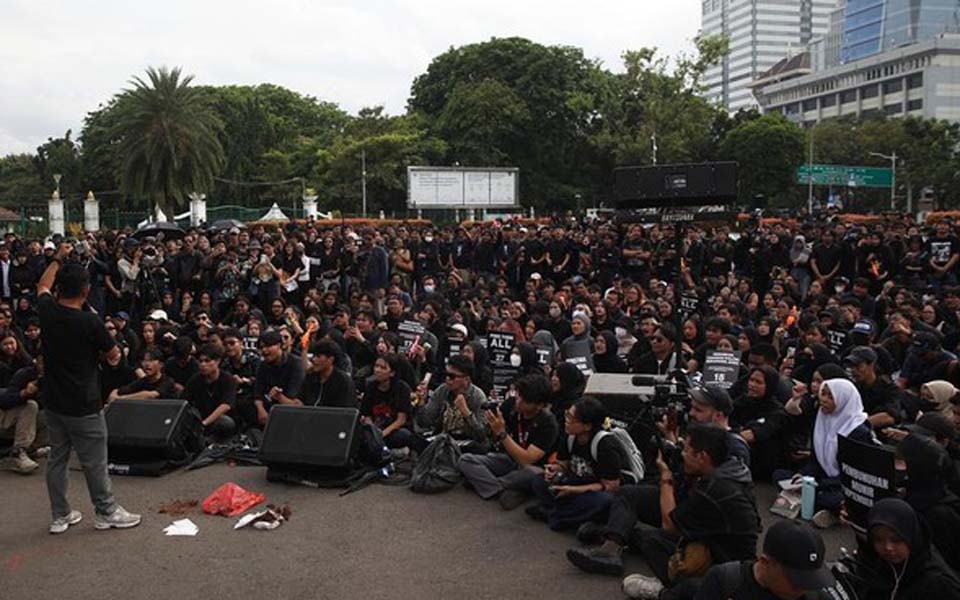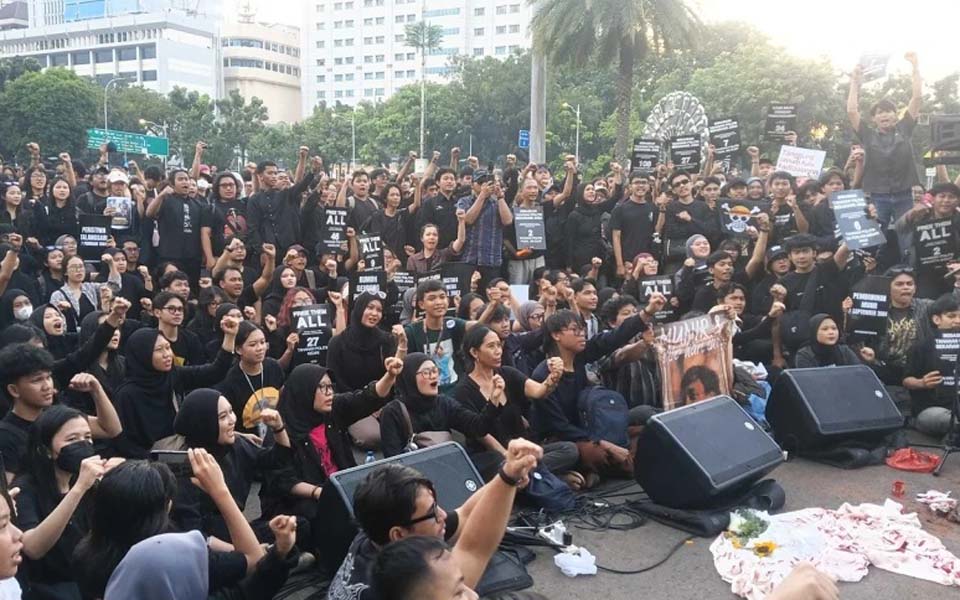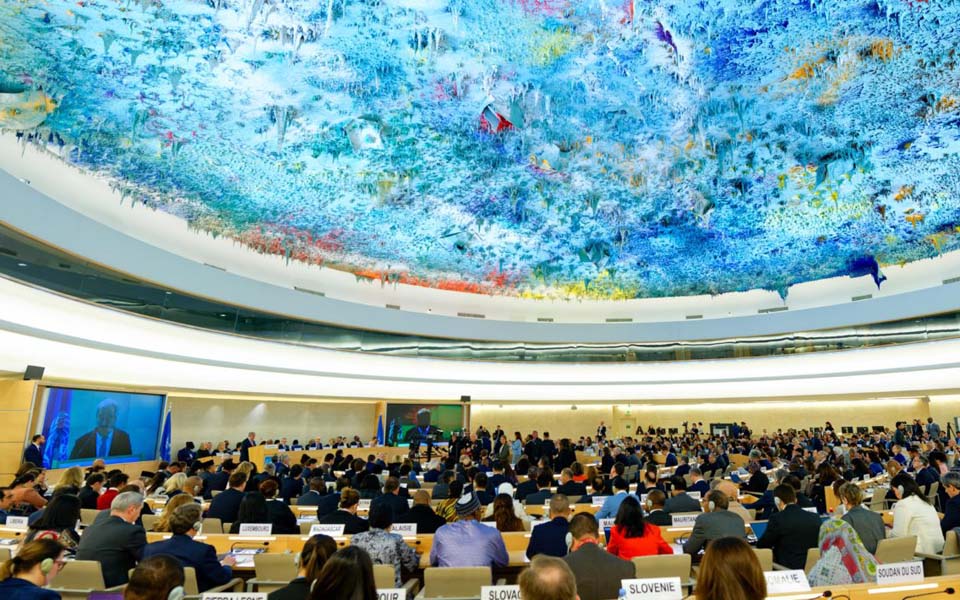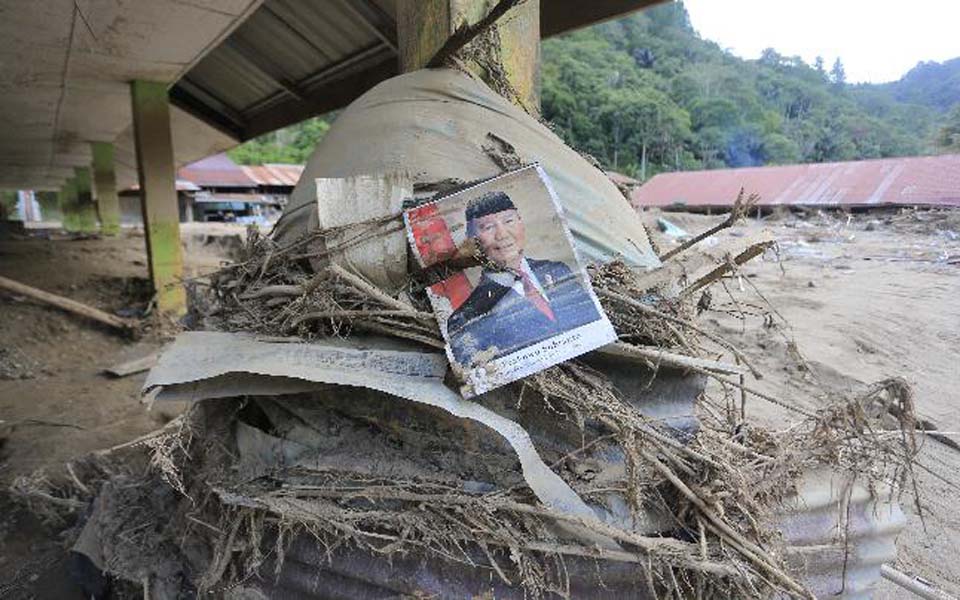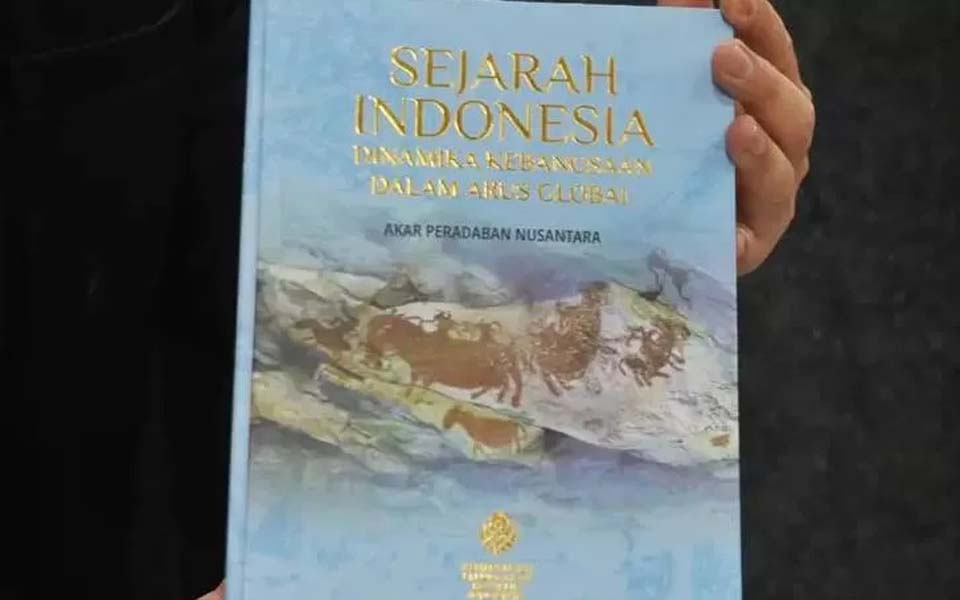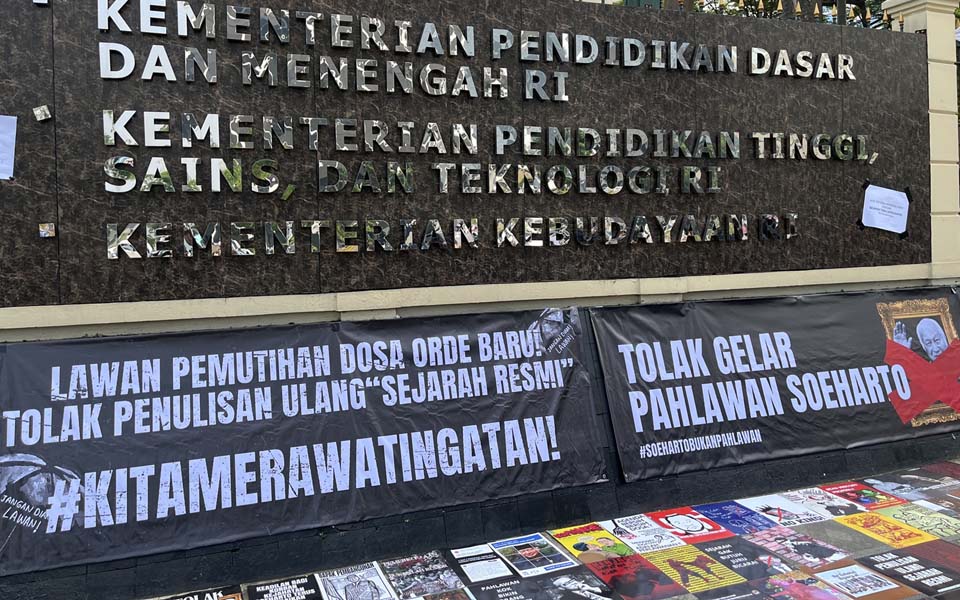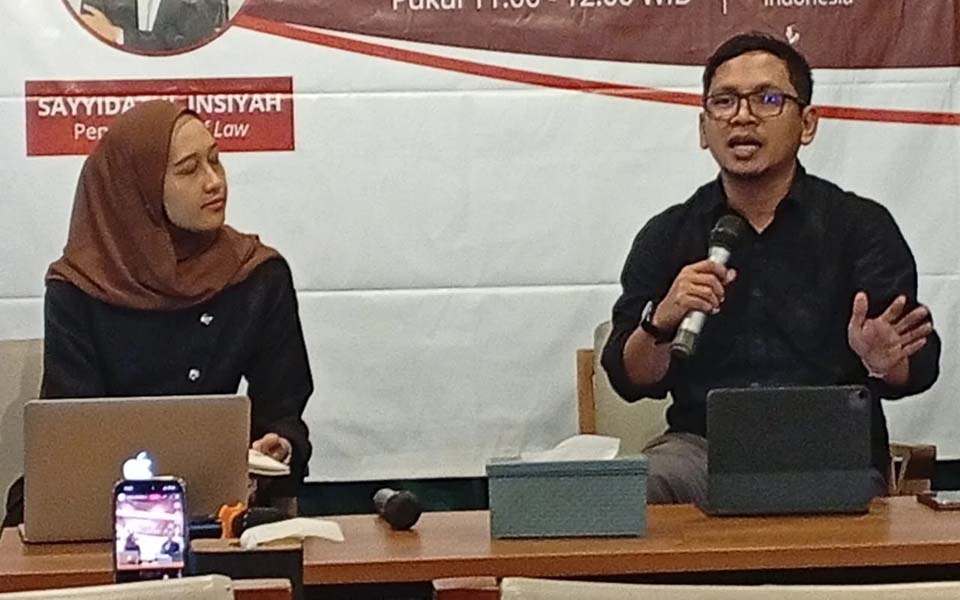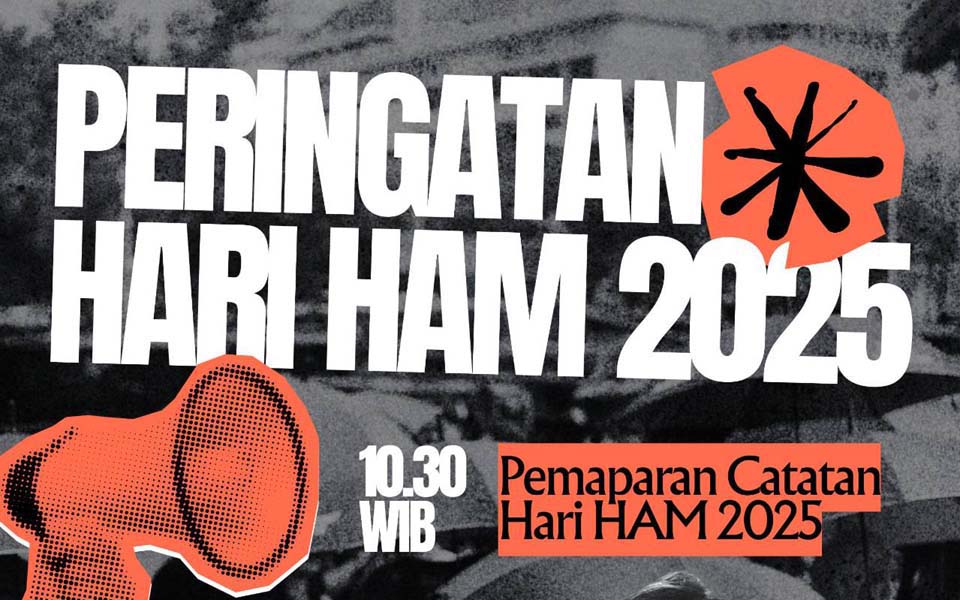Jakarta – On Tuesday November 9 activists from the National Human Rights Commission (Komnas HAM) and other organisations working against violence and crimes against humanity visited the Coordinating Ministry of Political, Legal and Security Affairs (Kemko Polhukam) on Jl. Medan Merdeka Barat, Central Jakarta.
The visit was to oppose former President Suharto’s nomination as a national hero. The activists, who waited for around an hour, failed to meet with any ministry officials to present the petition.
“We were not received by Kemko Polhukam staff for an audience. Yet not long ago the Coordinating Minister for Political, Legal and Security Affairs was kind enough to receive us. We oppose plans to give the title of hero to former President Suharto because of the many human rights violations he left behind,” said Kontras Coordinator Haris Azhar and the grouping of non-government organisations.
According to Azhar, it is more important to expose the stalled legal efforts to address human rights crimes that were allegedly committed by Suharto and his cronies. This is especially so because many of those who allegedly committed systemic crimes are still alive today. The exposure of these crimes will prove whether or not those concerned are fit to receive the title of national hero.
Sumarsih, a family member of a victim of human rights violations said that Suharto does not meet the criteria of moral integrity required to receive the title of hero. “Suharto does not meet the criteria of providing an example and shed much blood from the beginning to the end of his leadership. He also cannot be said to have rendered a service [to the country] because the physical development pursued [under his administration] created fertile ground for corruption”, she said.
Bejo Untung from the Institute for the Study of the 1965-1966 Massacres (YPKP 65) explained that the nomination and selection of Suharto as a hero would be an insult to common sense.
The activists cited a series of crimes against humanity that Suharto has been accused of including the incarceration of political prisoners on Buru Island (1965-1966), the mysterious shootings involving the extrajudicial execution of alleged criminals (1981-1985), the Tanjung Priok massacre of Muslim protesters (1984-1987), the Talangsari Lampung massacre of Muslim villagers (1984-1987), the Military Operational Zone (DOM) in Aceh (1989-1998), the DOM in Papua (1963-2003), the July 27 attack on the Indonesian Democratic Party headquarters (1996), the abduction and forced disappearance of activists (1997-1998), the fatal shooting of Trisakti University students (1998) and the May 13-15, 1998 riots in Jakarta. (ONG)
[Translated by James Balowski.]





